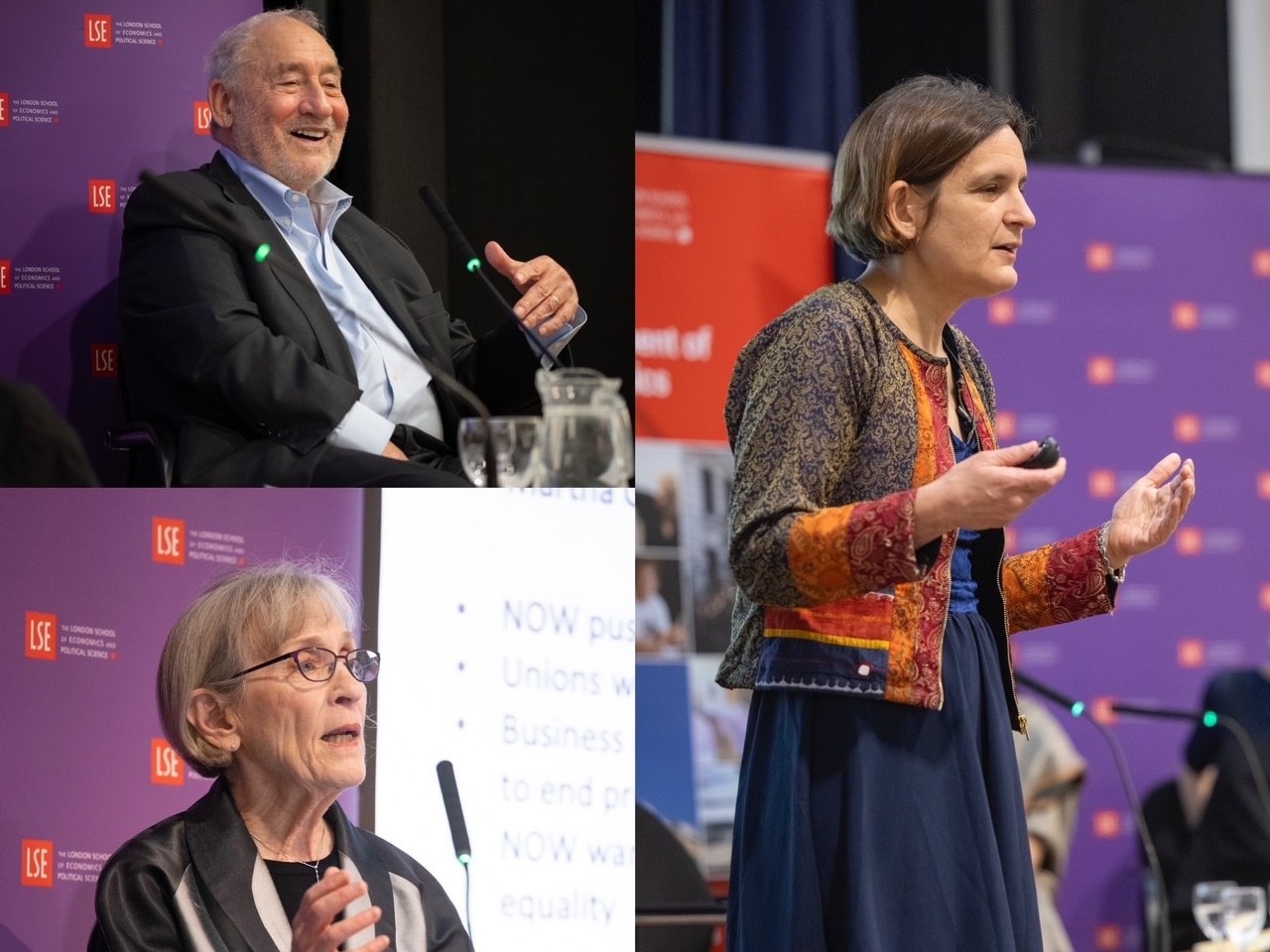 Joseph Stiglitz (top left), Claudia Goldin (bottom left), Esther Duflo (right)
Joseph Stiglitz (top left), Claudia Goldin (bottom left), Esther Duflo (right)
Three Nobel Laureates in Economics visited LSE's campus last week, drawing large crowds to their lectures on pressing global issues. Joseph Stiglitz (2001 Laureate), Claudia Goldin (2023 Laureate), and Esther Duflo (2019 Laureate) each addressed different aspects of economics in practice, delving into the complex relationship between freedom and capitalism, the status of women in society, and climate inequality.
Joseph Stiglitz initiated the series on Tuesday 30 April with a discussion of his new book, as well as a broader conversation about the limitations unregulated capitalism places upon societal freedoms. Challenging neoliberal economic principles, Stiglitz argued that the current system often favours the freedoms of the wealthy at the expense of broader social liberties.
“There’s a trade-off,” Stiglitz explained. “But I think it’s a trade-off where we understand how to make it. That is to say, which is more important, the right of corporations to exploit or the right of others not to be exploited?”
Claudia Goldin, the most recent Nobel Laureate in Economics for her work on women’s labour market outcomes, spoke on Thursday 2 May about the history of the women’s rights movement to gain legal equality. Tracing the ways in which public opinion shifted alongside increasing legal rights in the home, workplace, and society at large, Goldin also cautioned against unbridled optimism as she highlighted resistance from traditionalist factions among women which still exists today.
“Even though it is hard to show convincingly that rights led to change, it is also hard to believe that the wellbeing of most women did not improve because of the expansion of these rights, and it is also likely that the actions of the traditionalists have diminished the ability of women to fully use these rights,” Goldin said, citing funding for universal pre-kindergarten (pre-K) and parental leave in the US as prominent examples.
Esther Duflo concluded the week's lectures with a presentation on global climate inequality, alongside Shweta Banerjee, the Head of BRAC International, India, a global NGO dedicated to combating poverty. In the context of climate inequality — in which the populations least responsible for emissions are most vulnerable to the consequences of global warming — their discussion focused on proposed strategies to address climate injustice, including increased corporate and wealth taxation.
“Without adaptation, there will be no mitigation.” Duflo warned. “The poor countries that need to emit less, they also need to survive. For the moment, these two things are in conflict.”
Recordings of all three presentations are available on the LSE YouTube channel.
Find out more about events at LSE.